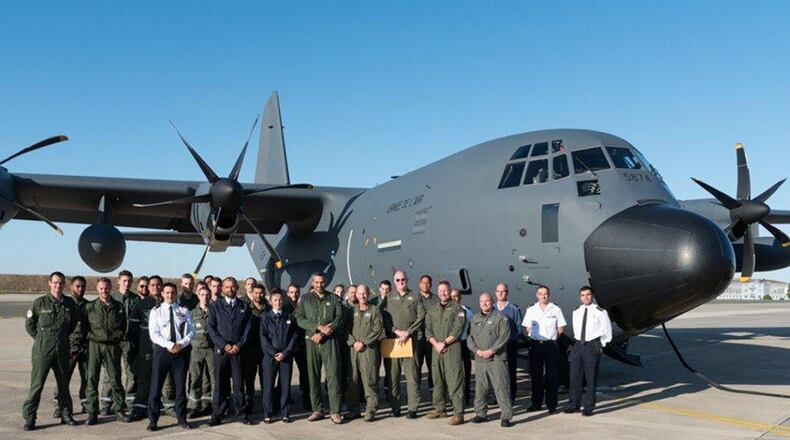The joint effort kicked off in 2017 when the French and German militaries approached AFLCMC’s Mobility and Training Aircraft Directorate and expressed interest in purchasing two C-130 models for Germany to add to the French aircraft – already in production – to create the squadron.
Newest enlisted promotees recognized during recent ceremony
“It was a new concept for us,” said Brock Thomas, the directorate’s C-130 FMS Branch chief. “We had never done anything like that [sell aircraft for joint foreign partnership], but we saw it as an opportunity.”
Working with a variety of stakeholders, including the U.S. State Department, the Office of the Deputy Under Secretary of the Air Force for International Affairs, Defense Security Cooperation Agency and French and German program teams, the AFLCMC team was able to put together a plan that allowed them to proceed with the aircraft sale and sustainment support.
As part of the plan, AFLCMC would sell aircraft to France and Germany separately and deal directly with the French to sustain the fleet.
“This is a big deal,” said David Collins, deputy chief for the International Acquisition Programs Division for the directorate. “Until we were able to come up with the right mechanism to mutually operate, train and maintain the squadron, France and Germany would not have been able to jointly operate the C-130s.”
Once established at Évreux-Fauville, German pilots will be able to fly French planes; French mechanics can work on German planes and vice versa. On any day, you could have a French pilot and a German loadmaster operating the same plane.
While there are benefits to the joint arrangement, there were a number of challenges the team had to overcome.
“Anytime you have allied opportunities, you have unique challenges,” said Thomas. “There are different airworthiness standards and we had to ensure the two nations recognized each other’s standards, but the benefits of this opportunity could be really significant. For example, it should save costs because now there is one set of facilities, one set of support equipment, and one spare parts pool.”
“Part of our job is to strengthen relationships with our partner nations,” Thomas added. “When you are talking about a C-130 that has a life span that is extremely long, what we are doing today is going to provide that joint French/German capability for decades to come. It will also help our industrial base because there’s a sustainment tail that runs for decades that is beneficial to our industry and industry around the world.”
About the Author
